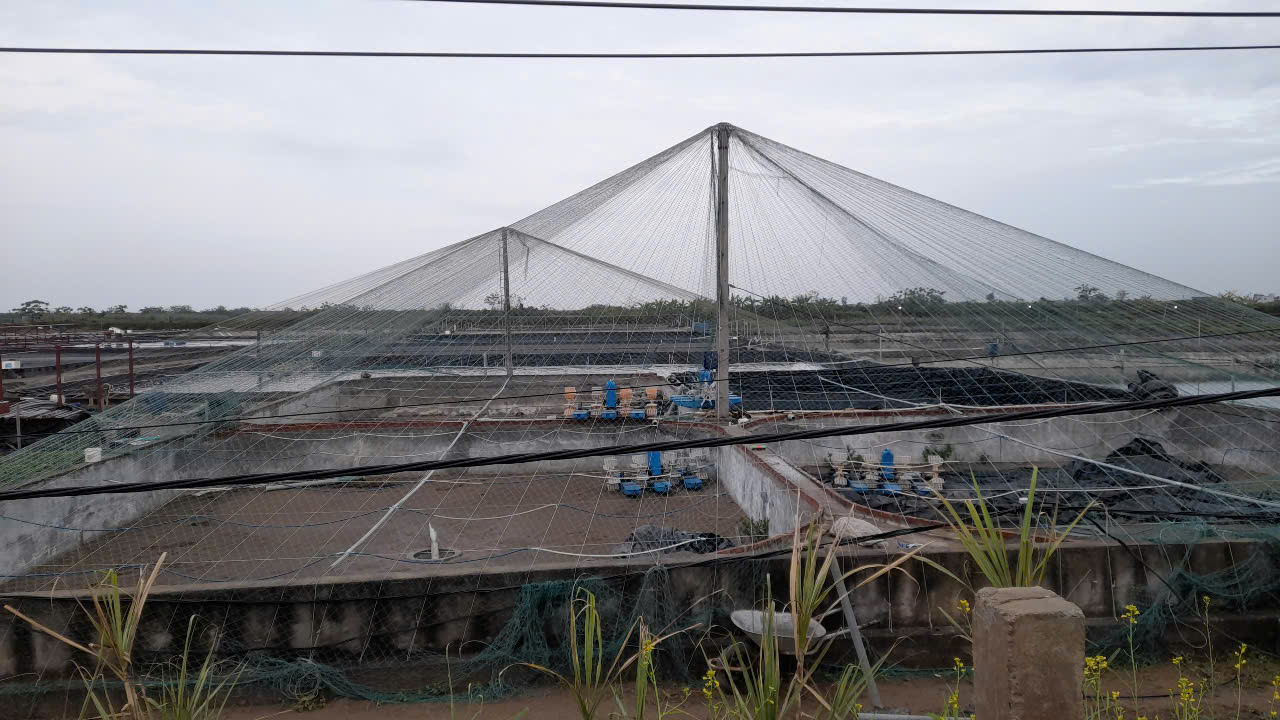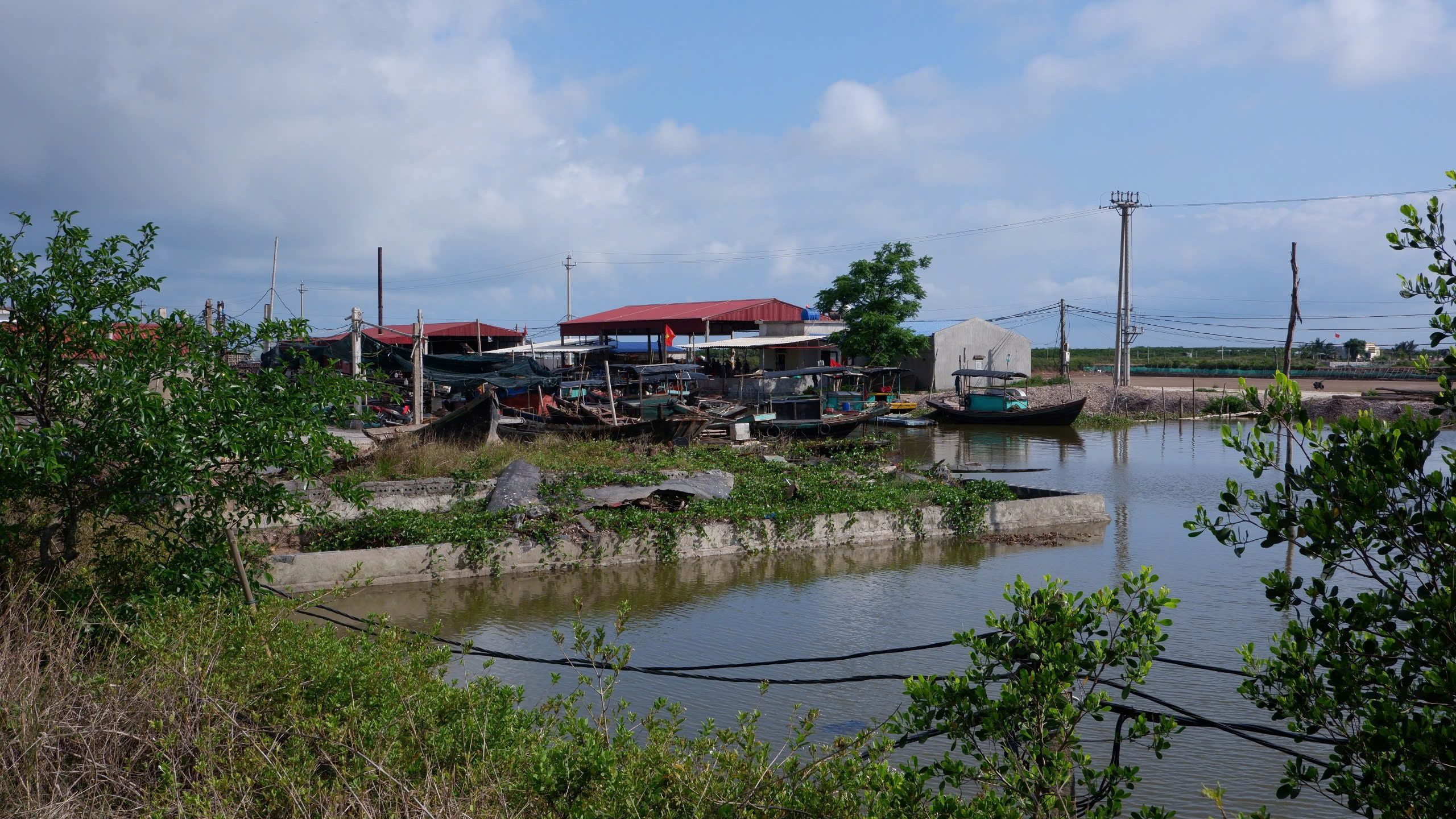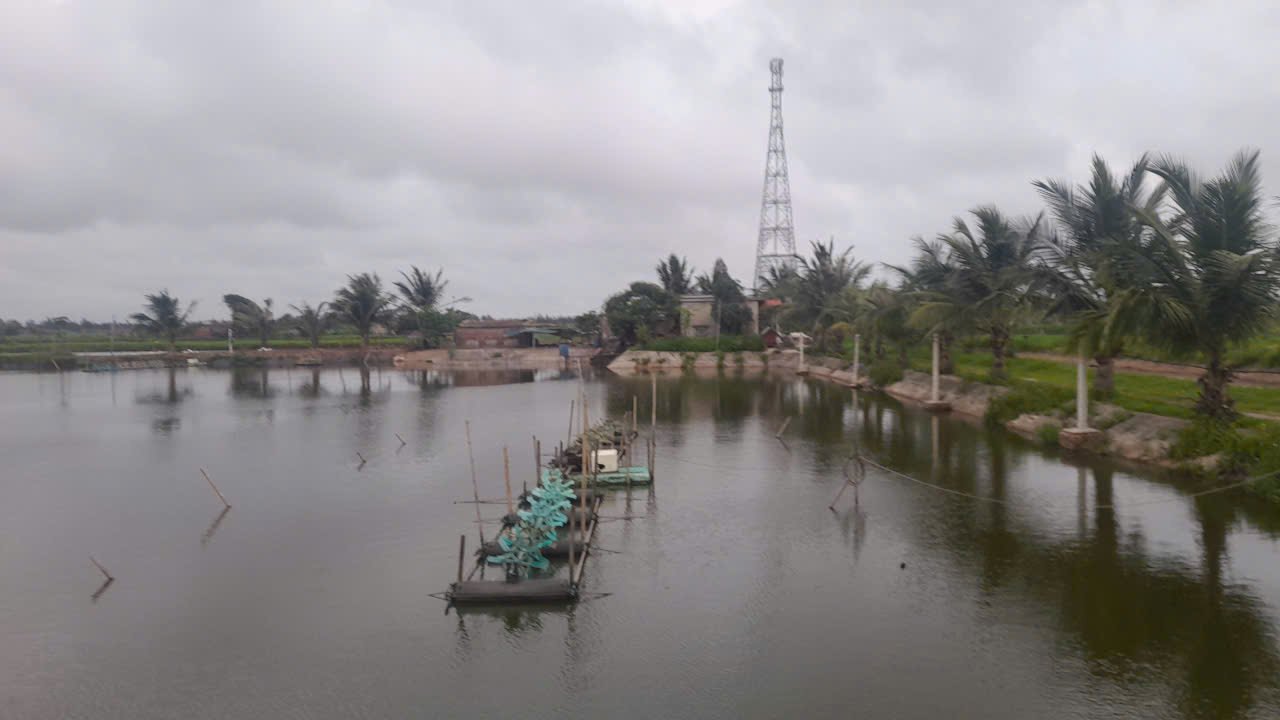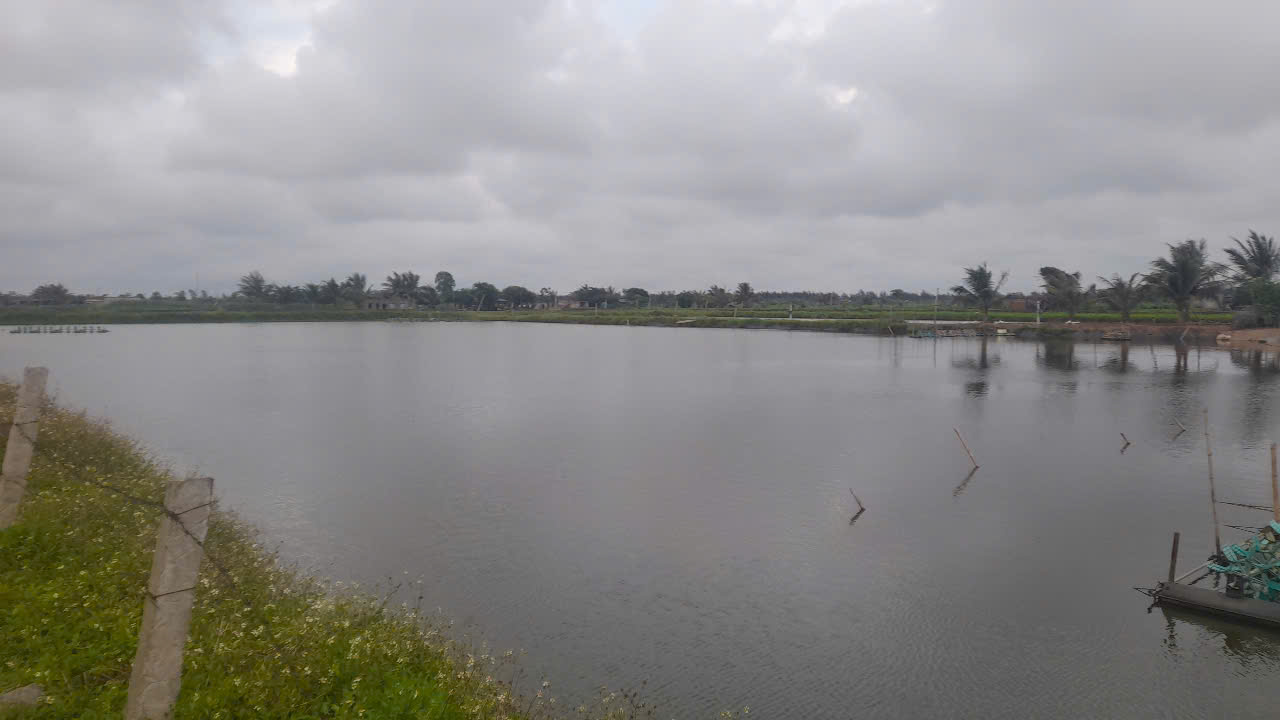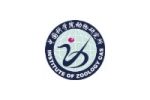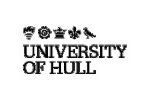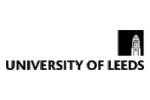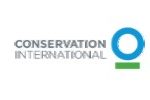In the context of climate change increasingly affecting aquaculture activities, the project “Ecosystem-based practices and climate-resilient aquaculture in Thailand and Vietnam” funded by the International Development Research Center (IDRC), Canada (2024-2027) has been implemented to study the current situation and find sustainable solutions for the livelihoods of coastal people based on nature. The objective of the project is to help improve the adaptation of stakeholders in the aquaculture sector to the challenges of climate change, including extreme weather events and ongoing changes in Vietnam through the application of ecosystem-based practices.
With the aim of collecting actual data and evaluating aquaculture models, the working group led by Dr. Le Thi Van Hue, Central Institute of Natural Resources and Environment Studies, with the participation of members of the Mekong Thought Leadership and Think Tanks Network Program (MTT), coordinated with the Vietnam Academy of Agriculture to conduct a field survey from May 14 to May 17, 2025 in the two provinces of Thai Binh and Nam Dinh.
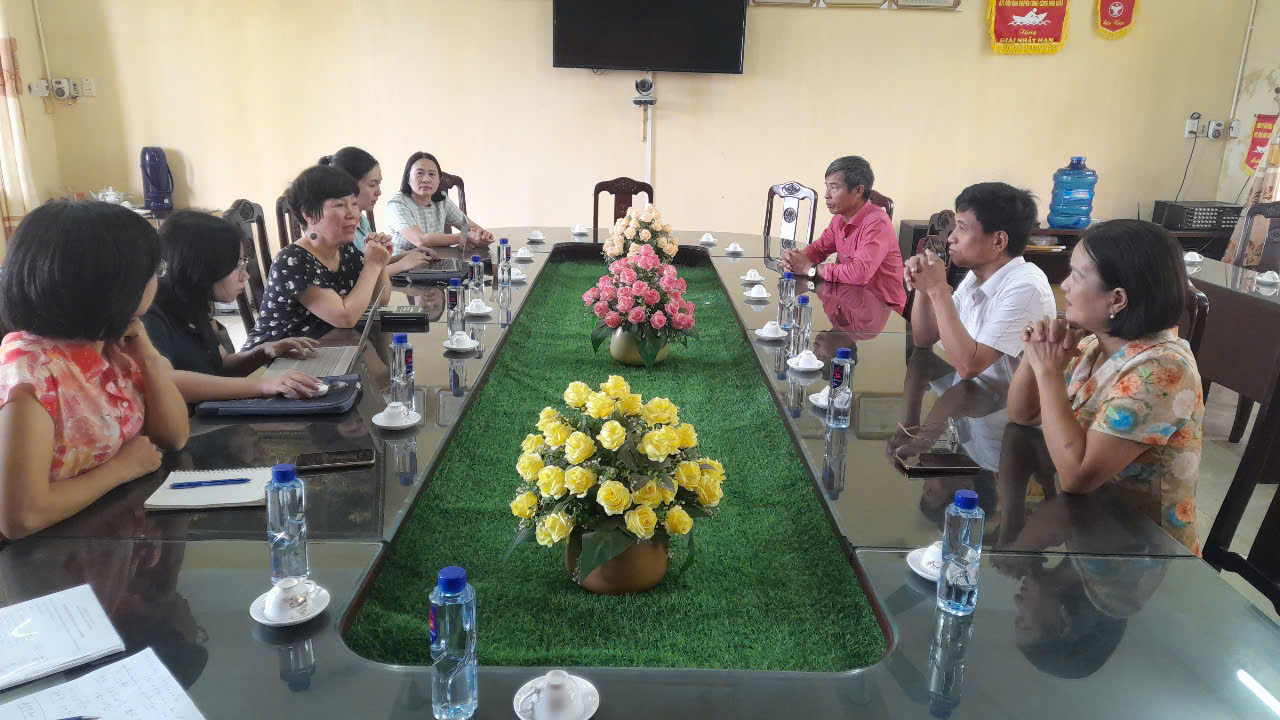
Pic 1. The working delegation led by Dr. Le Thi Van Hue working with leaders of Giao Thien commune, Giao Thuy district, Nam Dinh province.
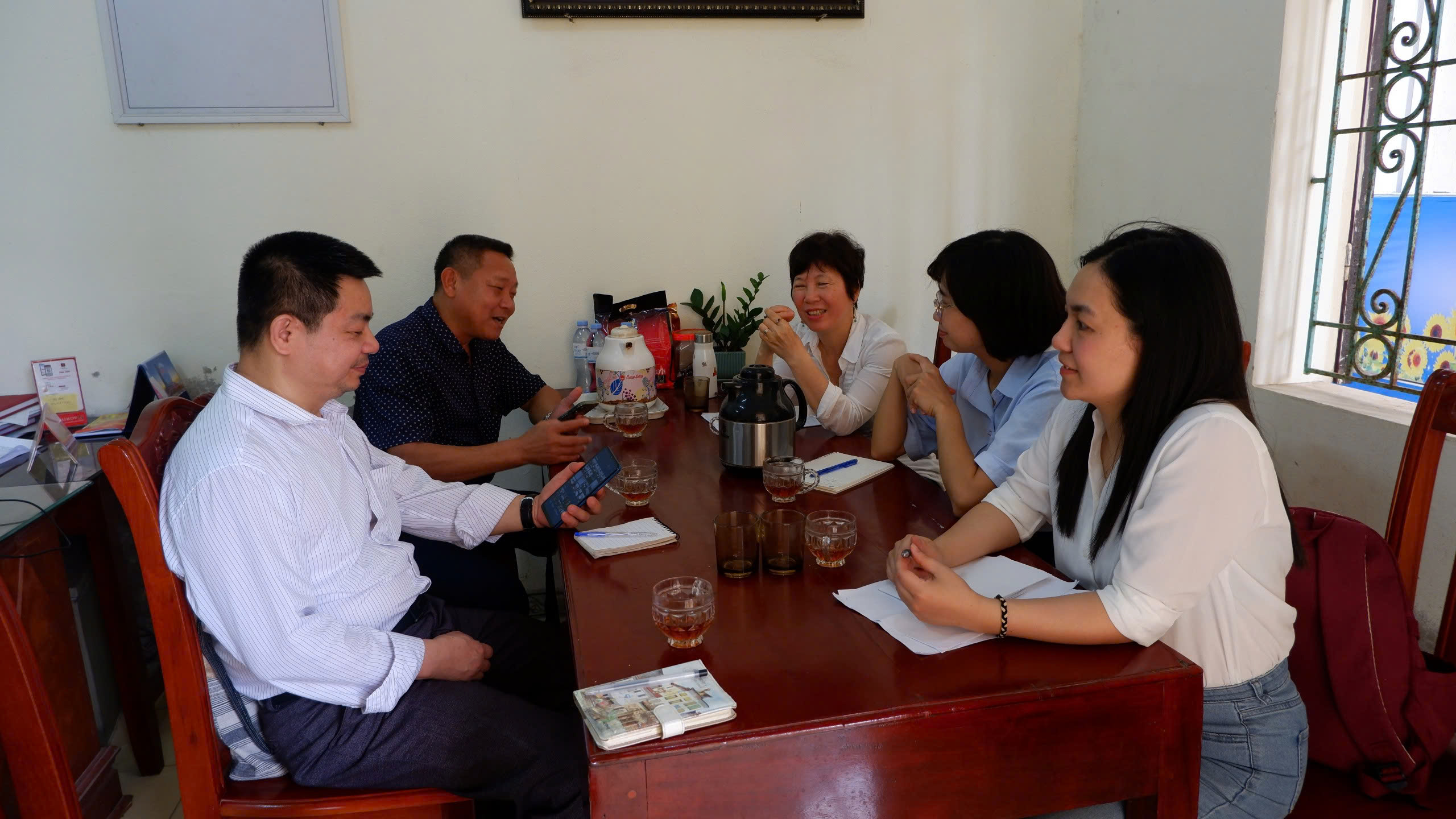
Pic 2. The delegation in discussion with leaders of Giao Lac commune, Giao Thuy district, Nam Dinh province
The survey conducted mainly focused on collecting in-depth information on the transition from extensive aquaculture to specialized aquaculture and high-tech industrial shrimp farming in coastal communes, including Giao Lac and Giao Thien communes (Giao Thuy district, Nam Dinh province) and Nam Hung and Nam Phu communes (Tien Hai district, Thai Binh province). The main objectives include:
- Assess the impact of aquaculture model conversion on people’s livelihoods and sustainable development.
- Learn how to manage and operate aquaculture models in the context of climate change.
- The roles of men and women in families and aquaculture.
- Identify solutions to harmonize economic benefits and coastal ecosystem conservation.
During the 4-day working period, the delegation had organized:
Focus group discussions: Meeting and discussing with 4 groups of 32 households involved in extensive, semi-intensive and intensive aquaculture in the above communes. The discussions focused on the current situation, challenges and nature-based solutions to adapt to climate change of the people in the two provinces of Nam Dinh and Thai Binh.
In-depth interviews: Conducting 20 interviews with key members of households who are directly involved in aquaculture management and farming. The interview content revolved around the production process, advantages and difficulties they encountered, as well as nature-based solutions to cope with climate change that they have practiced in the past 10 years.
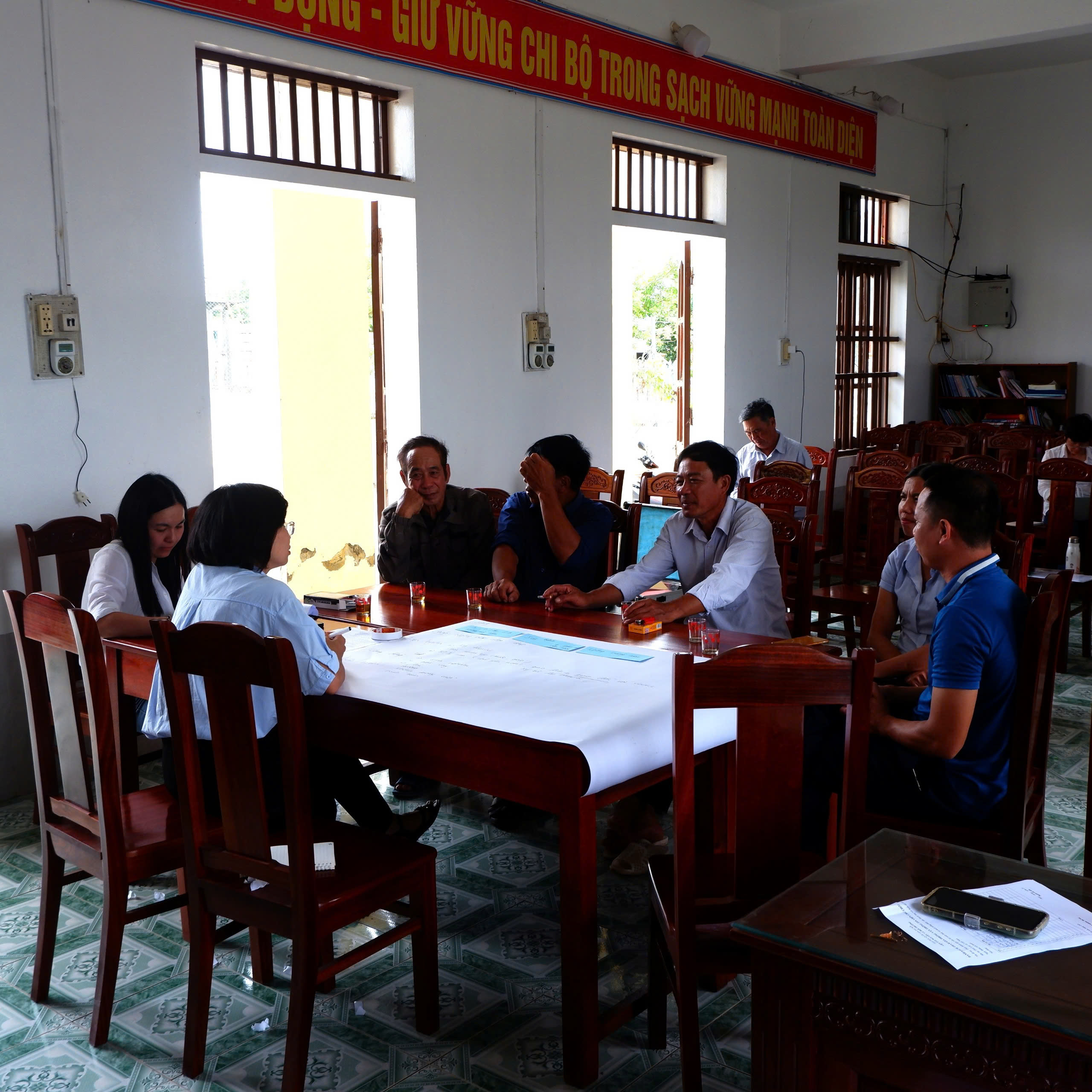
Pic 3. The working delegation conducting interviews with households in Giao Lac commune, Giao Thuy district, Nam Dinh province
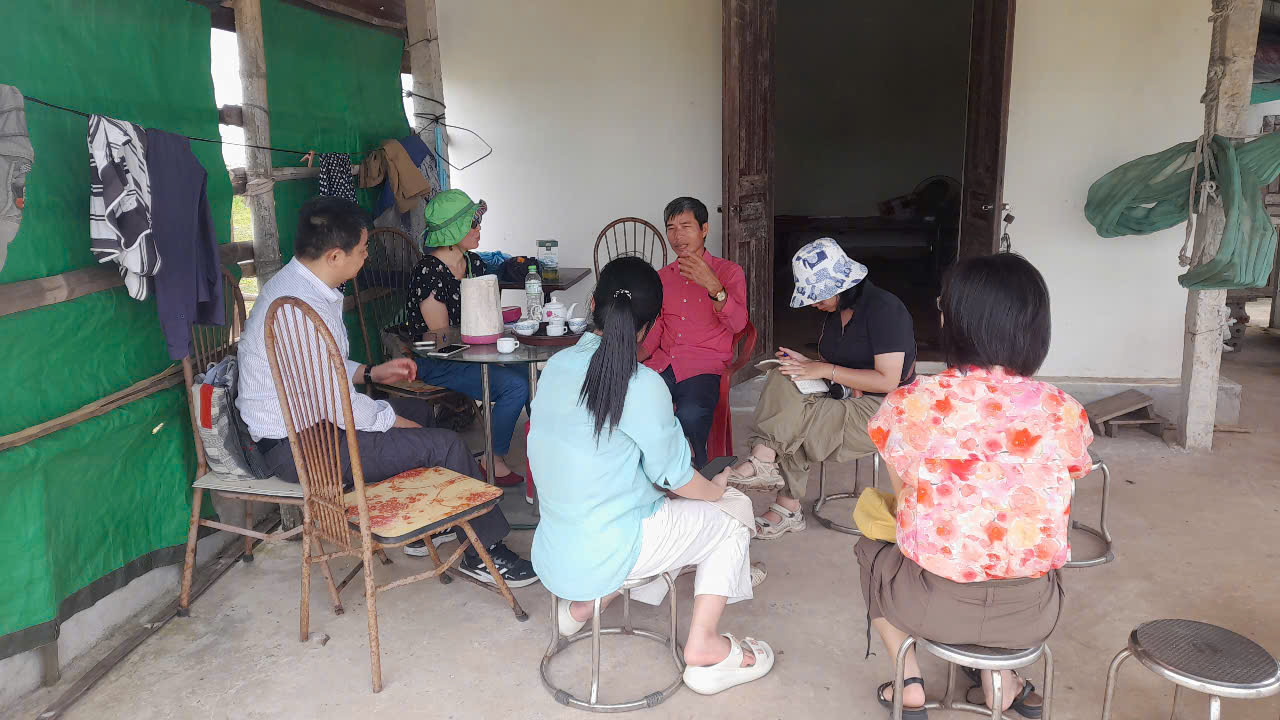
Pic 4. The working delegation conducting in-depth interviews with extensive shrimp pond owners in Giao Thien commune, Giao Thuy district, Nam Dinh province
After 4 working days, the working delegation successfully completed the set objectives, collecting an important amount of data for writing reports and articles to be published in international journals. The collected information clearly reflected the current status of aquaculture in the locality, thereby providing a scientific basis for proposing nature-based solutions for effective management, balancing economic development and environmental protection. This result not only met the expectations of the topic but also opened up a direction for further research on nature-based aquaculture models adapting to climate change.
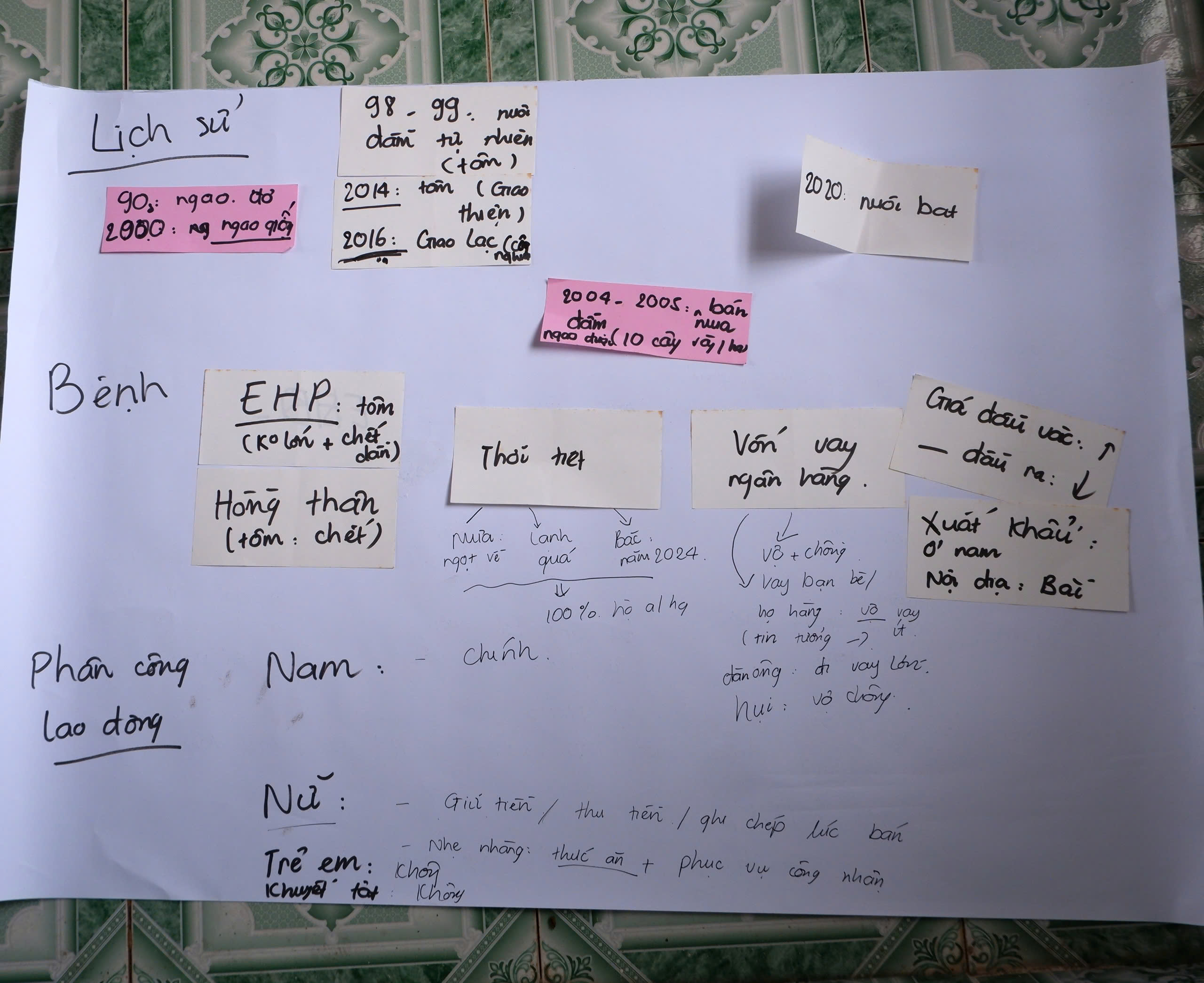
Pic 5. Partial results of group interviews in Giao Lac commune, Giao Thuy district, Nam Dinh province.
The survey is an important step forward in promoting sustainable nature-based aquaculture models, contributing to supporting coastal people to adapt to the challenges of climate change. The collected data and experiences will be the basis for proposing practical policies and solutions towards sustainable development for local communities.
Detailed information about the topic and survey activities will continue to be updated on the official website and fanpage of the Central Institute of Natural Resources and Environment Studies.
Photos captured of high-tech shrimp farming models in Giao Thuy district, Nam Dinh province and Tien Hai district, Thai Binh province:
